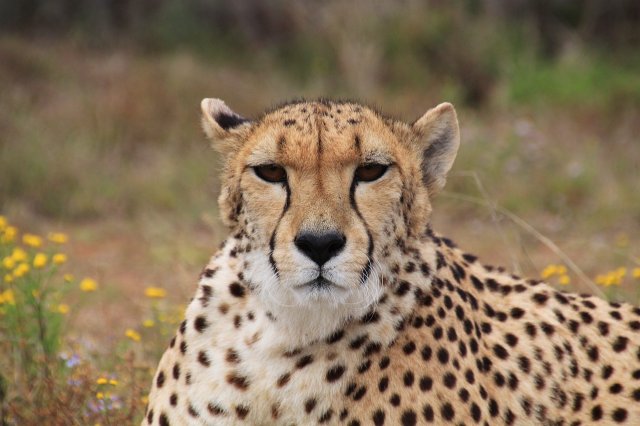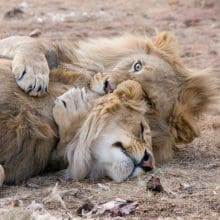Pet Cheetah: 5 Reasons Why NOT TO Have A Cheetah For A Pet
The Untamed Majesty of Owning a Pet Cheetah: A Fascinating Journey
Having a pet is a wonderful experience that brings joy and companionship to many people’s lives. From dogs and cats to birds and fish, there are countless options to choose from when it comes to selecting a pet. However, some individuals may be tempted to go beyond the traditional choices and consider owning a more exotic animal, such as a cheetah. While the idea of having a pet cheetah may seem exciting and unique, there are several compelling reasons why it is not a good idea. In this article, we will explore five key reasons why having a pet cheetah is not recommended.
1. Legal and Ethical Concerns
One of the primary reasons why owning a pet cheetah is not advisable is the legal and ethical concerns associated with it. In many countries, including the United States, it is illegal to keep a cheetah as a pet without the proper permits and licenses. Cheetahs are protected species due to their endangered status, and owning one without the necessary legal documentation can result in severe penalties, including fines and imprisonment.
Furthermore, keeping a cheetah as a pet raises ethical concerns. Cheetahs are wild animals that require specific habitats, diets, and social structures to thrive. Keeping them in captivity deprives them of their natural environment and can lead to physical and psychological distress. It is essential to prioritize the well-being and conservation of these magnificent creatures by supporting efforts to protect them in their natural habitats rather than attempting to keep them as pets.
2. Safety Risks
Another significant reason why having a pet cheetah is not recommended is the safety risks involved. Cheetahs are powerful predators with natural instincts that cannot be fully suppressed. Despite being raised in captivity, they retain their wild nature and can exhibit unpredictable behavior. Even well-trained cheetahs can pose a threat to their owners and others around them.
There have been several documented cases of cheetah attacks on humans, resulting in serious injuries and even fatalities. These incidents highlight the inherent danger of keeping such a large and powerful animal as a pet. It is crucial to prioritize the safety of yourself, your family, and the general public by choosing a pet that is suitable for domestic environments.
3. Specialized Care Requirements
Cheetahs have unique care requirements that make them unsuitable as pets for the average person. These animals have specific dietary needs, requiring a diet primarily consisting of fresh meat. Providing a proper diet for a cheetah can be challenging and expensive, as it often involves sourcing large quantities of high-quality meat.
In addition to their dietary needs, cheetahs require ample space to roam and exercise. They are built for speed and need room to run and stretch their legs. Keeping a cheetah confined to a small space can lead to physical and behavioral problems, such as muscle atrophy and aggression.
Furthermore, cheetahs are social animals that thrive in groups. Attempting to keep a cheetah as a solitary pet can lead to loneliness and depression. Meeting the social and environmental needs of a cheetah is a complex task that requires specialized knowledge and resources.
4. Conservation Concerns
Cheetahs are currently listed as a vulnerable species, with their population declining rapidly due to habitat loss, poaching, and illegal wildlife trade. By attempting to keep a cheetah as a pet, individuals contribute to the demand for these animals in the illegal pet trade, further endangering their survival in the wild.
Conservation efforts are crucial to protect and preserve cheetah populations. Supporting organizations that work towards conserving their natural habitats and implementing measures to combat poaching and illegal trade is a more responsible and effective way to contribute to cheetah conservation.
5. Expertise and Resources
Lastly, owning a pet cheetah requires a significant amount of expertise and resources. Cheetahs are not domesticated animals, and their care is far more complex than that of traditional pets. It takes years of experience and knowledge to understand their behavior, provide appropriate care, and ensure their well-being.
Moreover, the financial cost of owning a cheetah is substantial. From acquiring the necessary permits and licenses to providing proper housing, food, and veterinary care, the expenses associated with owning a cheetah can quickly become overwhelming for most individuals.
Summary
Pet Cheetah: While the idea of having a pet cheetah may seem intriguing, it is essential to consider the legal, ethical, and practical implications of such a decision. Owning a cheetah as a pet is not only illegal in many countries but also poses safety risks, requires specialized care, contributes to conservation concerns, and demands expertise and resources beyond the means of most individuals.
Instead of attempting to keep a cheetah as a pet, it is far more responsible and rewarding to support conservation efforts aimed at protecting these magnificent creatures in their natural habitats. By doing so, we can ensure the long-term survival of cheetahs and appreciate their beauty and grace from a respectful distance.
Read More About Cheetah’s From Wikipedia




